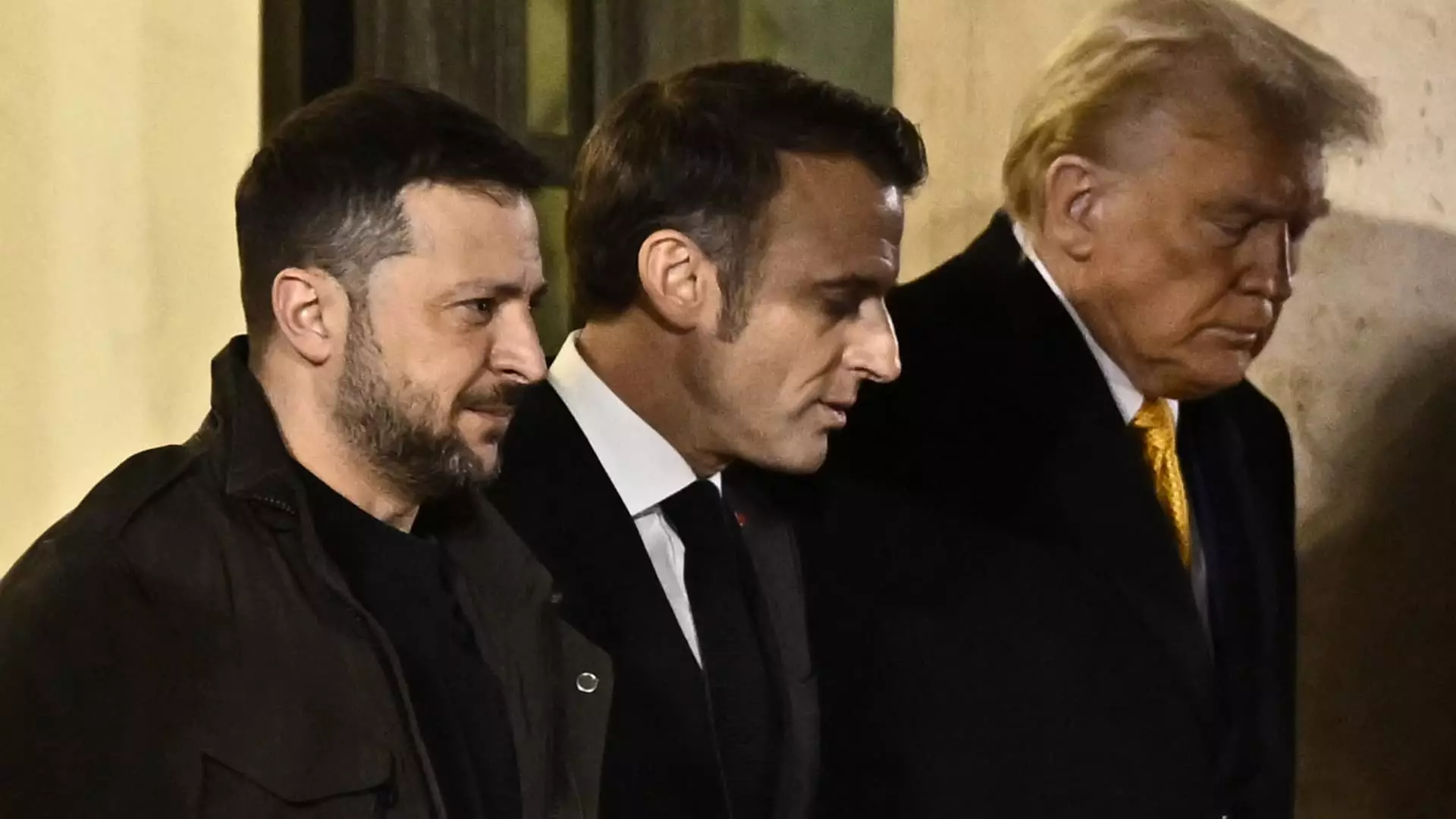The geopolitical landscape surrounding the Russia-Ukraine conflict is rapidly evolving. The focus has shifted towards the impending peace talks set to take place this week amidst a backdrop of anxiety over Europe’s potential exclusion from crucial negotiations. As Western powers scramble to address the ramifications of the ongoing war, Europe finds itself in a tumultuous struggle for a seat at the negotiation table, laying bare the complexities and challenges inherent in such international dialogues.
The recent announcement that U.S. Secretary of State Marco Rubio will engage in talks with Russian Foreign Minister Sergei Lavrov has set off alarm bells in European capitals. Concerns that Europe may be sidelined were only heightened at the Munich Security Conference, where hopes for a collaborative European role in negotiations began to falter. The absence of direct representation for the EU and the UK in the upcoming talks has been met with frustration and concern from European leaders, who underline the necessity of their involvement in achieving a durable peace.
European leaders convened in Paris for an emergency summit led by French President Emmanuel Macron, reflecting the urgency felt across the continent. The gathering strives to formulate a unified stance that can still influence the direction of peace talks despite being excluded from initial discussions. The summit included heads of state from key European nations, emphasizing a collective desire to reclaim a central role in the peace process.
Ukrainian President Volodymyr Zelenskyy has expressed skepticism regarding the efficacy of discussions that exclude Ukraine. He underscored that any negotiations concerning Ukraine, which do not involve direct Ukrainian participation, are unlikely to yield successful outcomes. Zelenskyy’s statements serve as a reminder that Ukraine is not merely a pawn in these discussions but a critical player that should have a voice in decisions affecting its sovereignty and future.
The conversations surrounding whether Zelenskyy would participate in initial discussions have added to the confusion, with contradicting messages emerging from U.S. leadership. The strategic ambiguity around Ukraine’s role poses inherent risks in negotiations that could determine the fate of millions. As Zelenskyy prepares for a later visit to Saudi Arabia, he reiterates the importance of inclusivity in negotiation settings—implying that excluding key stakeholders could jeopardize peace efforts altogether.
European officials such as Kaja Kallas, the EU’s foreign policy chief, have argued that any lasting peace agreement with Russia must include both Ukraine and European interests. Kallas emphasizes that a successful framework must acknowledge the role of Europeans in implementing any agreements. The disillusionment felt among European leaders is amplified by a sentiment that European input is essential for achieving any peace that is both just and lasting.
Injecting further complexity into the situation is U.S. Special Presidential Envoy Keith Kellogg’s assertion that talks need not devolve into large group discussions, hinting at a preference for bilateral dialogues. This approach underscores American hesitancy to foster a multi-national presence in these negotiations. However, it raises concerns about the long-term viability of peace efforts without a collaborative international framework backed by strong European support.
The stakes in the upcoming talks are not merely regional; their outcomes will reverberate across global defense and diplomatic landscapes. As both the U.S. and Europe weigh their respective roles in ensuring a stable peace, the call for increased military spending among European nations takes on new significance. This was underscored by British Prime Minister Keir Starmer’s commitment to engage with President Trump, signaling potential support for increased defense measures in response to a resurgent Russia.
With NATO preparing to reevaluate its defense expenditure targets, European leaders recognize that sustaining security in the region may require a radical strategic shift. The complex dynamics of diplomatic relations, weighed against the urgent need for stability in Ukraine, will demand that Europe ascend to a more assertive posture on the global stage.
As the next round of negotiations approaches, the crucial lesson emerges: ensuring peace in Ukraine cannot be a matter decided solely by a few dominant powers. Authenticity in diplomacy calls for participation from all stakeholders affected by the conflict. The European Union must rally to reinforce its influence while remaining steadfast in its support for Ukraine. Whether this emergency summit in Paris can propel Europe into a position of clairvoyance and strength remains to be seen, but the need for unified support against aggression is clearer than ever. The future of European security and the continent’s role in global politics depends on it.


Leave a Reply